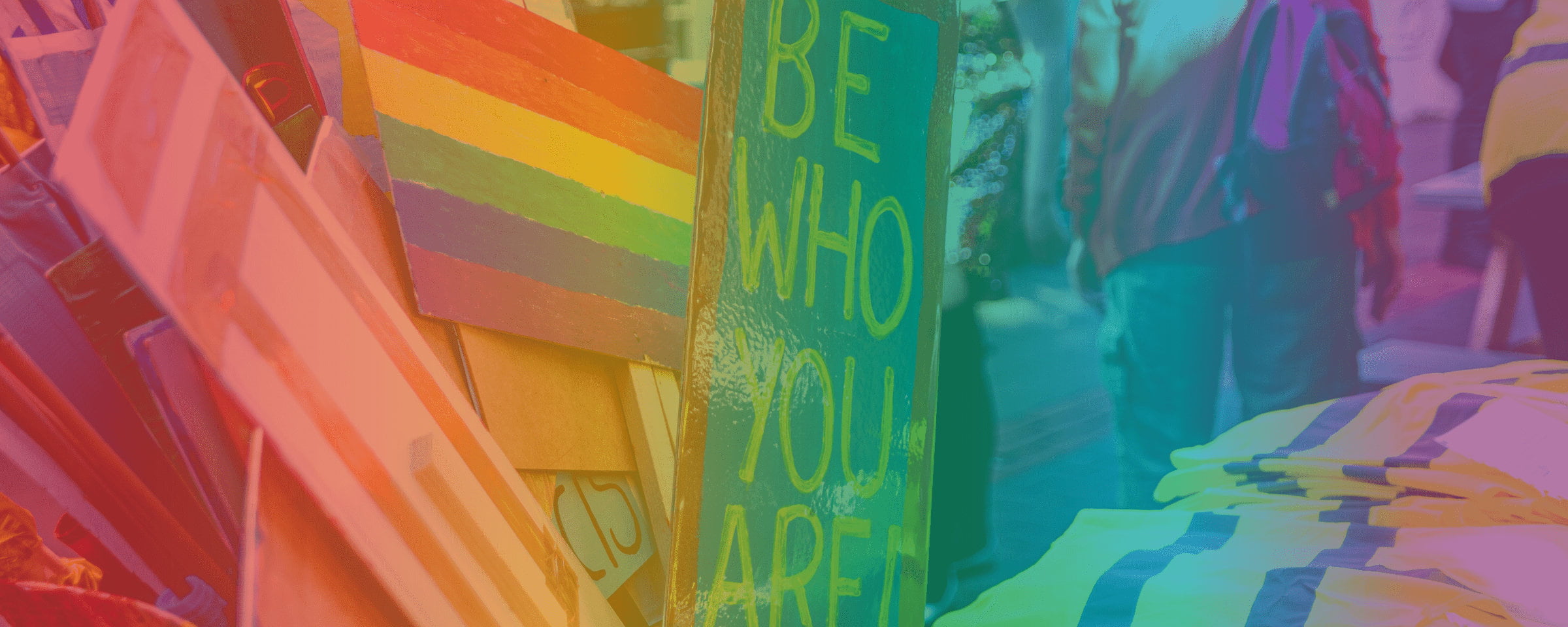Proud2Be Guest Blogger | Irian Greenleaf
- Guest BloggerYoung? Trans? Rural?
I’ve been invited to take part in a panel discussion at Totnes Pride this September, on the theme of “How can we best support LGBTQ+ young people?”
I spend a lot of time in contact with young trans people, both online and face-to-face – so last week, I asked them “What are your three biggest difficulties, if you’re young, trans, and living rurally?”
I got a lot of passionate responses – some from the UK, and some from further afield (mostly in the US), but certain strong universal themes came out. Here’s a condensed list:
- You’re financially dependent and lack freedom of choice – your parents may not support you buying or wearing gender-appropriate clothes, for example.
- You’re dependent for transportation too – you’re often living a long distance from resources or groups, and there’s often a lack of public transport or people willing to give you lifts.
- The tension between wanting to come out and needing to stay closeted is huge, since in a small community the locals are all you’ve got, so the possibility of you being ostracised is much more frightening.
- Lack of privacy – everyone’s into everyone else’s business in a small community. It’s much harder to do things at your own pace, and to choose who knows what about you.
- It can be more difficult to contact other trans people (you may not have internet or phone access, or it may be monitored) – it’s easy to grow up very isolated, and thinking you’re “the only one” (or not understanding yourself), as there’s often no trans information or resources to be found locally.
- Where there are youth groups you could potentially get to, they’re often mixed LGBT groups, which can sadly be a hostile environment for young trans people – you can often find yourself marginalised in these groups, or even dealing with transphobic prejudice from others there.
- People in small communities are more likely to have conservative or religious views that prejudice them against your gender issues.
- Ignorance/prejudice:
◦ Family – if they’re antagonistic towards your gender identity, that can be terribly distressing. So many young trans people from rural areas end up living on the streets in cities (or considering suicide), because living at home has ceased to be safe, and there’s nowhere else to go locally.
◦ Educators – the same thing applies at schools, where teachers can be unsupportive or even antagonistic towards you, and humiliate you in front of others.
◦ Peers – you’re more likely to encounter people your own age who have their parents’ prejudiced views about being trans, and there’s a much smaller pool of people to find friends and allies in.
◦ Healthcare – your GP is often the first person you pluck up the courage to come out to… and in rural areas, doctors (and clinic staff) can be very uneducated about trans issues, and can even be prejudiced and refuse to take you seriously, which is a huge betrayal.
*****
There’s lots more to be said, but these are the issues that came up over and over again in response to my question.
What are some possible solutions? Here’s a couple of ideas to start with:
- A funded Travel Buddying system would be a huge help – a pool of suitably vetted drivers who could give young people lifts to and from support groups.
- Training for healthcare providers – educating the staff and GPs at rural surgeries on how to respond in a supportive manner to young people asking for help with gender issues. It’s a too common experience for trans people to find themselves having to educate their healthcare providers on how to help them through the system, and this is something that young people in particular shouldn’t be burdened with.
Essentially, any ways in which we can give young trans people more affirmation and encouragement, and make them feel taken seriously (protip: by the time they tell you, believe me, they’ve already thought about it!) will make them more confident and assertive (and happy), and therefore less vulnerable to being bullied – either by peers or by adults, at home, at school, or in the healthcare system.
I’ve written about trans people here, but most of this is true for any LGBTQI young people living rurally (and not just rurally). They all deserve as much support as possible.





2 Comments
Padmavyuha Green
I’m going to add something I’ve been batting around with other people over the last couple of days. I’d definitely like to expand the “Training for healthcare providers” heading to include mental healthcare practitioners.
Many trans* people can end up with mental health issues alongside of their gender issues – often because of the way they’re treated for being gender-nonconforming whilst growing up (in fact, a recent study suggests that people who are gender-nonconfomring as children are 10% more likely to experience some form of abuse in consequence, and to suffer from PTSD too). So trans* folk may sometimes find themselves under the care of local mental health teams, and psychiatrists. Particularly away from the bigger cities, it’s quite likely that these practitioners are not well schooled in gender issues, and can come out with all kinds of unhelpful nonsense (such as mixing up gender issues with sexuality, just as one example) and be prejudiced and judgemental. Even for adults, when you’re in a vulnerable state it’s hard to challenge the views of an “expert” like this, but it’s that much harder for young people.
And in this country, the process of gender transition starts in any case with being referred to a psychiatrist for assessment before you can get referred to a Gender Identity Clinic – there are sound reasons for this, which mainly revolve around ensuring the client gets appropriate support while transitioning, if they have mental health issues to deal with as well, since transition can be a time of incredible upheaval, even while it’s an incredible relief. But I know many trans* people (and I’m one of them) who report having to field ridiculous and irrelevant questions about our lifestyle and sexuality from psychiatrists, along the way to getting referred for help with gender dysphoria. It would be a much better experience if these professionals were given some further training in gender issues (since they’re hardly ever people who have specialised in that area).
Carol Uren
There is a Trans only group (Transfigurations) which meets the 1st Wednesday of every month in Torquay and we welcome all ages – although we do stipulate that Trans youth can also attend, but please contact one of the administrators first before attending via our Facebook page or by telephoning Carol on 01803 404500 (Landline) or 07454 655500 (Mobile). For Trans youth between the ages of 14-18 we would like you to have at least one of your parent’s consent for you to attend. For Trans youth below the age of 14, we would expect you to attend with at least one of your parents for the first few visits.
Our Face book page is at:- https://www.facebook.com/groups/torbay.trans/
If any young trans person requires transport to get to the event and home again afterwards, then please contact me to see if I can organise anything for you.